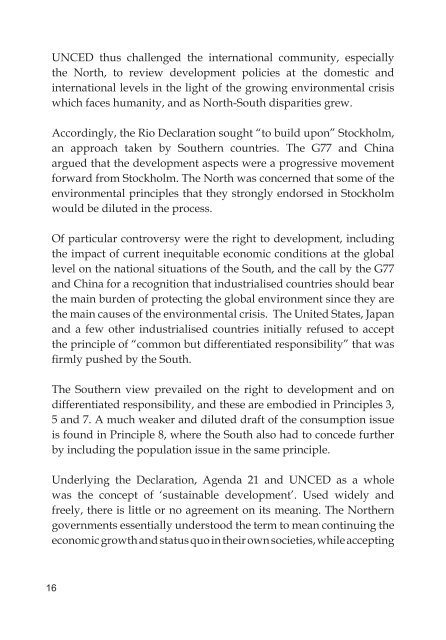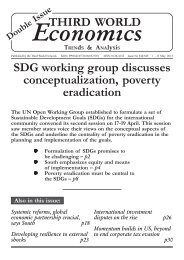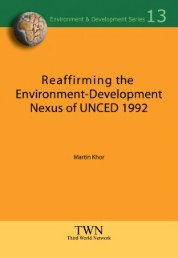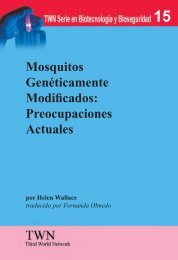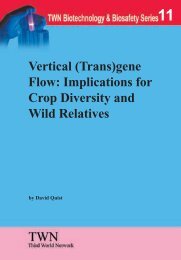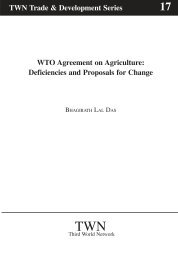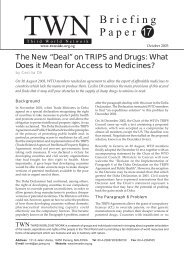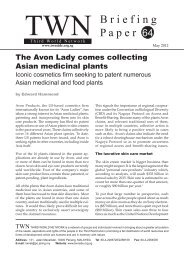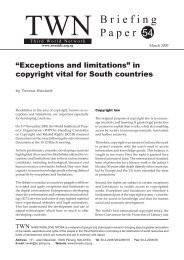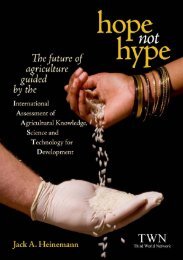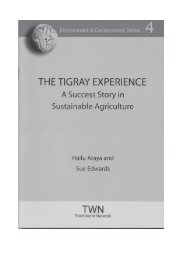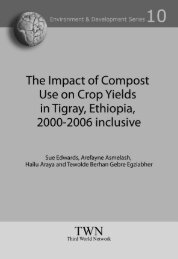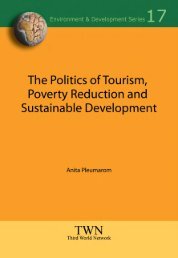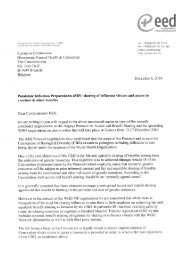Rio Declaration On Environment and Development: An Assessment
Rio Declaration On Environment and Development: An Assessment
Rio Declaration On Environment and Development: An Assessment
Create successful ePaper yourself
Turn your PDF publications into a flip-book with our unique Google optimized e-Paper software.
UNCED thus challenged the international community, especially<br />
the North, to review development policies at the domestic <strong>and</strong><br />
international levels in the light of the growing environmental crisis<br />
which faces humanity, <strong>and</strong> as North-South disparities grew.<br />
Accordingly, the <strong>Rio</strong> <strong>Declaration</strong> sought “to build upon” Stockholm,<br />
an approach taken by Southern countries. The G77 <strong>and</strong> China<br />
argued that the development aspects were a progressive movement<br />
forward from Stockholm. The North was concerned that some of the<br />
environmental principles that they strongly endorsed in Stockholm<br />
would be diluted in the process.<br />
Of particular controversy were the right to development, including<br />
the impact of current inequitable economic conditions at the global<br />
level on the national situations of the South, <strong>and</strong> the call by the G77<br />
<strong>and</strong> China for a recognition that industrialised countries should bear<br />
the main burden of protecting the global environment since they are<br />
the main causes of the environmental crisis. The United States, Japan<br />
<strong>and</strong> a few other industrialised countries initially refused to accept<br />
the principle of “common but differentiated responsibility” that was<br />
firmly pushed by the South.<br />
The Southern view prevailed on the right to development <strong>and</strong> on<br />
differentiated responsibility, <strong>and</strong> these are embodied in Principles 3,<br />
5 <strong>and</strong> 7. A much weaker <strong>and</strong> diluted draft of the consumption issue<br />
is found in Principle 8, where the South also had to concede further<br />
by including the population issue in the same principle.<br />
Underlying the <strong>Declaration</strong>, Agenda 21 <strong>and</strong> UNCED as a whole<br />
was the concept of ‘sustainable development’. Used widely <strong>and</strong><br />
freely, there is little or no agreement on its meaning. The Northern<br />
governments essentially understood the term to mean continuing the<br />
economic growth <strong>and</strong> status quo in their own societies, while accepting<br />
16


